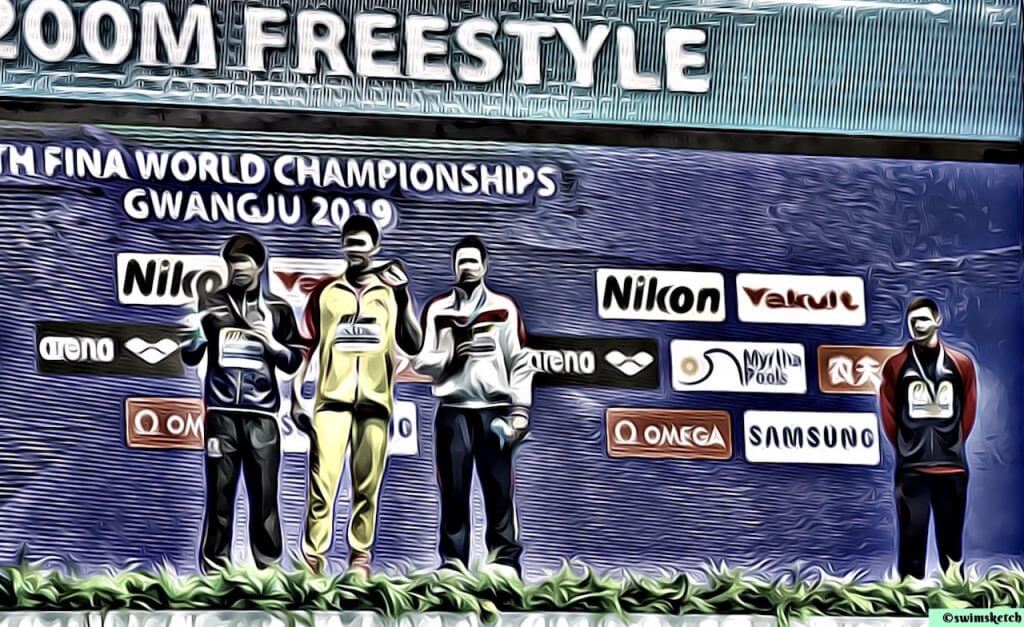German Athletes Welcome Bach Readiness To Relax Rule 50 & Allow Peaceful Protest

Athleten Deutschland, the German athlete-representative body, has welcomed an International Olympic Committee (IOC) u-turn on its stance on Rule 50 of the Olympic Charter.
Until recently, the IOC had been firmly entrenched in its anti-protest stance, issuing a warning to athletes of late that those heading to the Tokyo 2020 Olympic Games, now in 2021 due to the COVID-19 pandemic, that they faced punishments if they engaged in acts of peaceful protest such as taking a knee.
That sparked an immediate call from Global Athlete to think again, the group issuing this statement on Sunday.
The IOC’s Athletes’ Commission released further guidelines in January to clarify Rule 50, which bans all protests. Those left “no wiggle room for athletes to protest in any way without punishment”, said the Athletes’ Commission.
Change is on the wind, however, after IOC president Thomas Bach declared last week that the federation would work with the Athletes’ Commission to relax the protest rules in the face of widespread kickback from athletes noting their right to speak out and show solidarity for the Black Lives Matter movement in the wake of the brutal death of George Floyd.
In its January guidelines, the IOC Athletes’ Commission asked: What does the Olympic Charter say on this matter? [of protests]. It then answers as follows:
The Olympic Charter is the codification of the fundamental principles of Olympism, rules and bye-laws adopted by the IOC. It governs the organisation, action and operation of the Olympic Movement, and sets forth the conditions for the celebration of the Olympic Games. Rule 50 of the Olympic Charter provides a framework to protect the neutrality of sport and the Olympic Games. It states that:
“No kind of demonstration or political, religious or racial propaganda is permitted in any Olympic sites, venues or other areas.”
Now, athletes are suggesting far and wide that if they wish to take a knee or show – through peaceful acts of protest to raise awareness and contribute to change – solidarity with those suffering discrimination, they should be allowed to do so without threat of penalty.
The issue is relevant to the punishments handed down by FINA, the international federation, to Australia’s Matt Horton, Britain’s Duncan Scott and the man who screamed ‘you loser’ in the Scotsman’s face, China’s Sun Yang, now suspended for eight years, pending a last-ditch appeal on procedures, rights and technicalities to the Swiss Federal Tribunal.
Bach has indicated his willingness to listen. Today, athletes in his own country, issued the following:
Statement on the Revision of Rule 50 of the Olympic Charter from Athleten Deutschland
Athleten Deutschland welcomes Thomas Bach’s initiative to review Rule 50 of the Olympic Charter including the ban on political protests. The restriction of freedom of opinion in sport can only be tolerated if athletes and federations jointly determine possible limits and thus legitimize them through a jointly negotiated consensus.
To allow for a meaningful and sustainable consultation process with athletes, we expect the IOC Athletes’ Commission and the IOC leadership to respect and fully implement the following principles:
1. Genuine inclusion
The consultation process and any changes to Rule 50 must be based on feedback from the athletes’ representatives. Independent athlete groups representing Olympic athletes must be included with equal consideration. The terms of the consultation process must be jointly defined by all participants prior to its start.
2. Transparency
Feedback must be made publicly available and visible. If certain pieces of feedback are rejected or not considered, the IOC Athletes’ Commission must provide a justification for the rejection.
3. Accountability
The IOC Executive Committee must commit itself to implementing the results of the consultation. It must report transparently on how these results are reflected in its decision-making process for the review of Rule 50.
Johannes Herber, CEO of Athleten Deutschland, adds:
“It is perilous to limit any possible changes to Rule 50 in advance to the scope of the Olympic Charter. The Charter does not include a commitment to fundamental human rights. While the IOC’s principle of non-discrimination is crucially important, it does not cover many other rights worthy of protection.”
In light of this discussion, we refer to the call to include an eighth fundamental principle of Olympism in the Olympic Charter. This would see the IOC commit to respecting all internationally recognized human rights. The call made by Athleten Deutschland
Maximilian Klein, Representative for International Sports Policy for Athleten Deutschland:
“Previous consultation and participation processes have not sufficiently met basic democratic standards. The involvement of athletes in the postponement of the Olympic Games was unsatisfactory; the announced consultation procedure on Rule 40 has not yet taken place. We are of course happy to be convinced of the opposite and expect the process to be initiated swiftly by the end of June.”
The statement follows moves by other organisations, including close IOC affiliates such as the United States Olympic and Paralympic Committee, in support of the right of athletes to protest.
USOPC CEO Sarah Hirshland announced that the organisation would be forming an athletes’ working group to “challenge the rules and systems in our own organization that create barriers to progress.”
Some athletes see USOPC as a barrier to progress, even now. According to the Associated Press, Hirshland decided to form the athletes’ working group without consulting the USOPC’s Athletes’ Advisory Council (AAC).
The AAC’s first vice chair, Cody Mattern, believed the lack of consultation was a blip and that focus needed to be on where it was most needed. He told AP:
“While there was a breakdown in communication last week with the USOPC, we must all focus on the larger task at hand: addressing life-threatening racial injustice.”



